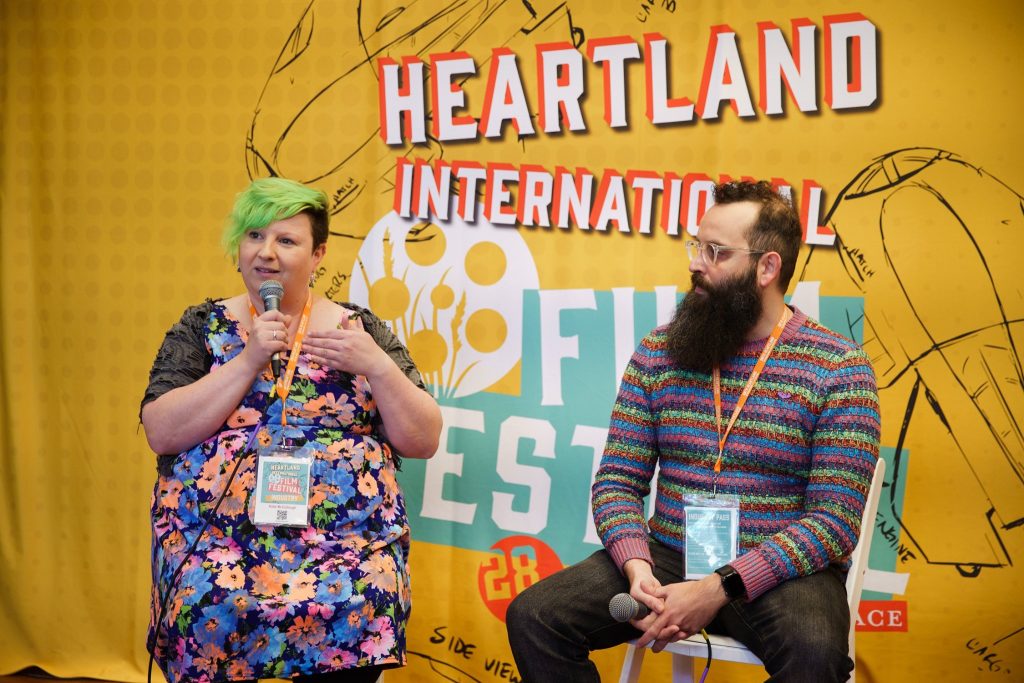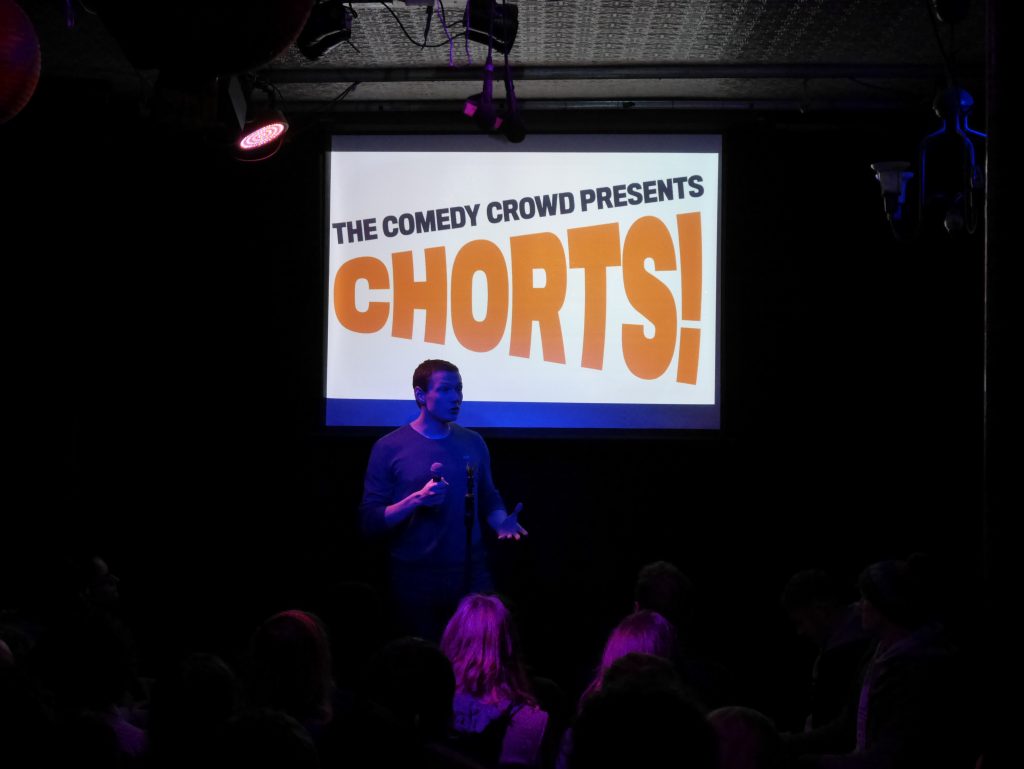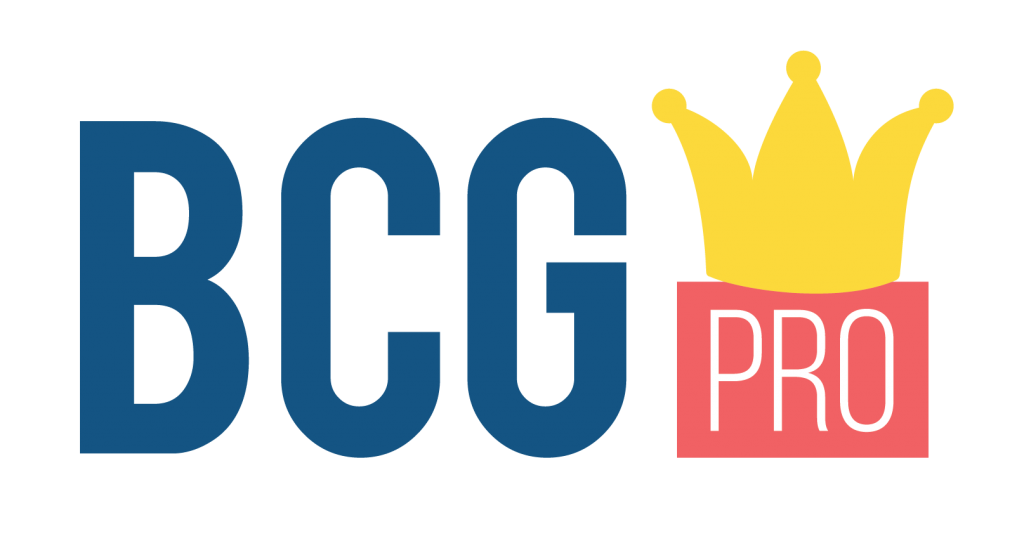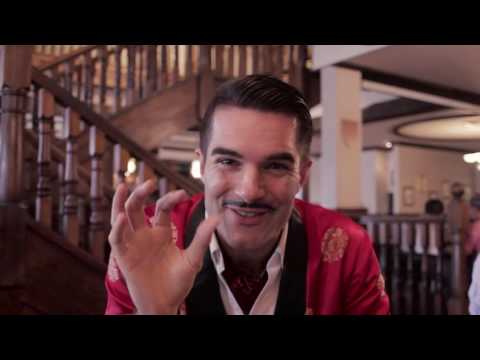If a funny line gets written on a tree in the woods and no one reads it, does it exist?
The biggest challenge for comedy creators is getting your work in front of the right audience. After years of working with new writers and performers, here are 5 things we believe are not always intuitive, but can make the difference.
- Don’t Write a Sitcom
Or to be more precise, don’t write a sitcom straight away. There is obviously nothing wrong with doing this, it just won’t get you anywhere.
There’s 2 reasons for this. One, its technically very difficult to get right, and two, no one will read it.
Veep and Black Books writer Andy Riley likens new writers writing a sitcom to walking into a gym for the first time and picking up the heaviest dumbbell. You won’t do it right. This is a really important message. Start simple and focussed. A sitcom should evolve from a great idea that’s been polished over time. Don’t dive straight in.
And then more importantly, no one wants to read a sitcom script.
Script editor Andrew Ellard likens showing someone a sitcom script to looking at the blueprints for a house. No one wants to see the detailed blueprints, people want to see a working model, or images that more closely resemble what it should look like.
If you want to get an idea of what a website will look like, you don’t start reading the underlying code. You look at simple mock versions or demonstrations of final product. The same thing applies to presenting a comedy show.
So what can you do instead? Recognise what you are really offering to a production company or commissioner. You are bringing the creativity, the comic style, the ideas and characters. Not the technical framing and packaging. As an up and coming writer, focus on what makes you valuable, and we’ll come on to how to do that again point 5.
- Don’t create a masterpiece
Obviously we’re not saying don’t write something good. That we would highly recommend. We mean get feedback and make edits early, rather than waiting for perfection.
Getting feedback and editing or cutting your work is one of the hardest things for new writers. But it’s also absolutely necessary. It’s so hard to judge your own work. Even the most experienced writers don’t rely entirely on their own judgment.
To take a phrase used in the business world, ship ugly. Which essentially means get feedback quickly and don’t spend too long perfecting your script or creation before you do.
Do enough to get the idea and characters across, then start testing. As a creative exercise this is really useful as it forces you to distill down what is integral to your comedy, and what isn’t. If it’s not important, you don’t have time to worry about it. What is it about your character or their relationships that is funny? Once you know what this is you can test it and quickly find out whether the idea has real potential.
Ultimately, using this approach you can churn through lots of great ideas and identify which are worth pursuing, rather than putting heart and soul into one that may never have real potential with an audience.
And when you get feedback, take it on board and be willing to make changes. With this approach you have to get used to getting feedback, and that can be daunting… but it’s something you would definitely have to face in any writersroom so its good to experience it early.
The key thing here is to have the right mindset. Be confident enough in your style and humble enough to want to learn, so that deleting jokes you’ve written isn’t so hard. It always is, but remember that you can do something even better.
Which brings us to point 3
- Give your ideas away
Such a common concern for all creatives is that people will steal our ideas. So we have to protect them from the world. But this is completely the wrong mindset to have. Spending time and energy protecting your creations is a distraction that you can’t afford.
The way to get noticed and progress as a comedy writer is to develop yourself so that you can have many multiple ideas and execute on them in your own comic style.
A great example of this is from one of the early Simpson’s writers – George Meyer. He wrote a short humour magazine and gave away his best stuff to friends for free. Then he invited other people to write for it and enter their contributions. As the magazine grew in popularity Sam Simon found out about it and he offered Meyer a role in the Simpsons writing team. This was based on his comedy style being demonstrated repeatedly. One specific idea wasn’t what stood out, he did.
We recently ran a competition at The Comedy Crowd to write a 2 minute sketch about 2 characters from a family in the year 2050. That’s very specific, and certainly constitutes an idea. But the responses were executed so differently within those constraints that the comedy style and quality really stood out individually. The fact that everyone was “stealing” our idea didn’t lead to the same output.
Would you rather live in a world of scarcity or abundance? One where you have to be constantly wary of people taking the one or two precious winning ideas, or one where ideas are so common people have 10 a day and learn to execute better each time on the ones they find most exciting? Have many ideas, and don’t be afraid to share them.
- Don’t be a lone writer
By which we mean collaborate with other writers and performers.
When John Cleese talks about his days as part of a sketch troupe in the Cambridge Footlights, he refers to the in-jokes, teasing and mutual helpfulness of the team creating a confidence and feeling of support that was the most motivating force he ever experienced.
Many writers are introverts, and so the natural inclination is to enjoy time spent in our own thoughts. That’s no bad thing, and may be how you produce your best work. You don’t have to work with others at all times, but take opportunities that arise.
There are many ways to collaborate and share skills in comedy. Sketch troupes like John Cleese describes are a great one, but there’s also having a writing partner to bounce ideas off and make each other laugh, writing for an actor like Henry Normal and Steve Coogan, exchanging ideas as part of a social group or community, or attending conferences and comedy events.
The key early on is to say yes. Get involved with other writers and performers, and take the many opportunities to do it.
- Be creative in your presentation
The way people watch comedy is always changing but the key elements of making comedy remain the same. We can break it down into 3 things:
- Collaborate with fellow creators and make connections
- Create funny and engaging content
- Present it to your audience
The aspect that evolves the most is also the one people spend least time on – how to present your work to an audience.
The internet and smart phones have effectively broken the barriers to entry for writers and performers. Anyone can now share their comedy ideas online, but you still need to do it right to reach your audience. In fact, now that anyone can post their creation online, if you are going down this route it is vital that you have a strategy to make sure you stand out.
Here are 2 examples. The first you will know. Ricky Gervais and Steve Merchant made The Office and are the inspiration for many comedy creators since. But they didn’t pitch a sitcom script alone (unlike the example Ricky Gervais shows from his character Andy Millman in Extras). They filmed rough, short scenes of David Brent being interviewed as a delusional “seedy boss”, and this is what was identified as having potential by the BBC.
An example of those just starting out on their journey comes from some of the creators in our community who recently created a sketch called Chicken Shop Turf Wars. They have made a number of sketches now as part of the Fat Lady Sings sketch group, and the practise is being reflected in the quality of the output.
But what they have done very well is used Facebook to promote and share the video, achieving over 300,000 views in the first 2 weeks by targeting the right audience (including those who like chicken shops – the right audience may not only be comedy fans!). Facebook, with all the information it holds on people’s interests, can be a very effective tool for helping you find an audience.
So think who your audience are and where they are. What do they like to read and watch, what is their attention span? The same applies whether your target audience are fans or industry producers or commissioners. Give them what you know is good, in the format they want to receive it in.
If you want to try this yourself you can start by creating 2 minute videos of your comedy characters and share them on our Chorts! platform. The best Chorts! are screened at festivals and shared with industry producers and commissioners. Check out the Chorts here
Some of the best Chorts! have been shot using a single camera or smart phone. Its all about the comedy character, not production values.
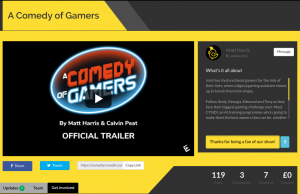 The Comedy Crowd is a community full of people like you. People who have great ideas and want to see them happen. Helpful, friendly, funny people with a diverse array of skills, and we’ve created a platform that brings this Crowd together.
The Comedy Crowd is a community full of people like you. People who have great ideas and want to see them happen. Helpful, friendly, funny people with a diverse array of skills, and we’ve created a platform that brings this Crowd together.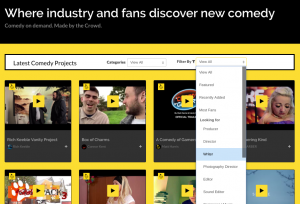 Comedy loving folk can then scan through the projects, filtering by the role they’re looking to fulfil, and then contact the creators directly through their project page.
Comedy loving folk can then scan through the projects, filtering by the role they’re looking to fulfil, and then contact the creators directly through their project page.
